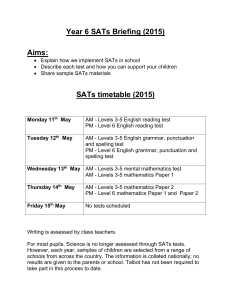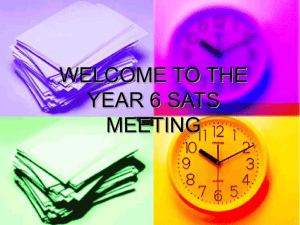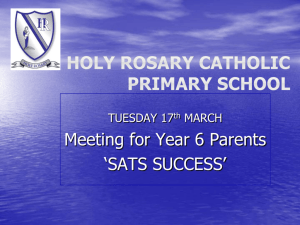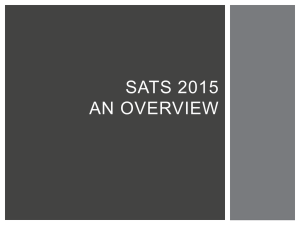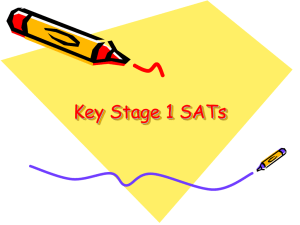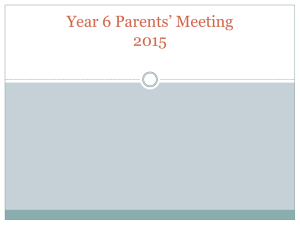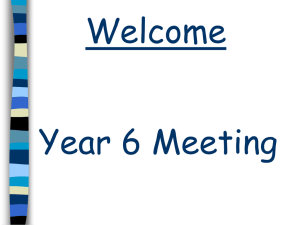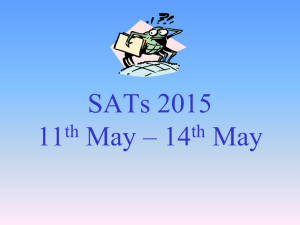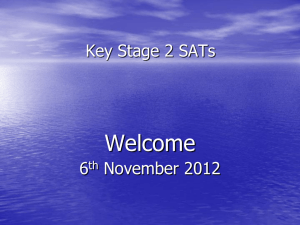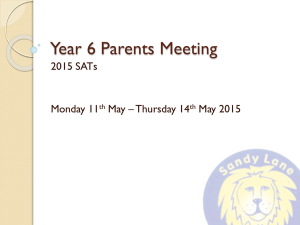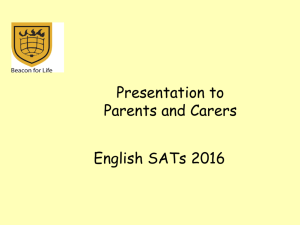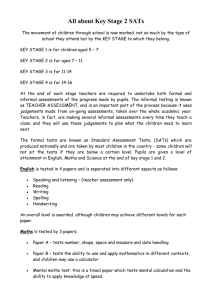SATS_presentation_2014
advertisement
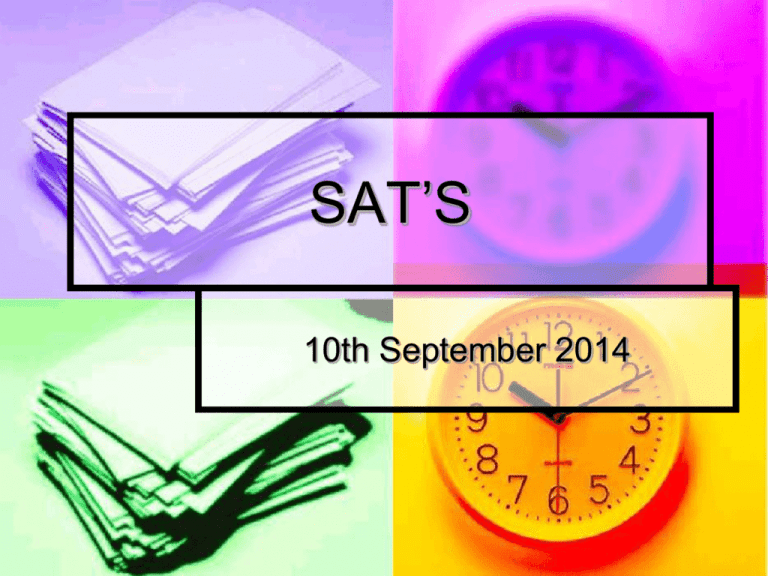
SAT’S 10th September 2014 What are SATs? Standard Attainment Tests (SATs) Pupils are assessed in national tests at the ages of 7 and 11, at the end of Key Stages 1 and 2. These tests are designed to help teachers assess pupils' strengths and areas for development. They also help teachers to determine pupils' understanding of a subject. Levels Depending on how many marks a child scores, they are given a level. The marking scheme is different every year. The expected standard for a child in Year 6 is Level 4. Levels 1, 2 and 3 are below average and Level 5 is above average. Children should already be demonstrating achievement above Level 5 before being entered for the Level 6 tests. What subjects? Pupils are tested in English and Maths. English: - a reading comprehension paper - a grammar, punctuation and spelling paper Maths: - two non-calculator papers - a mental maths test Writing composition is based on teacher assessment When? The Maths and Reading tests will be held during the week of 11th May 2014 Monday 11 May Levels 3-5 English reading test. Level 6 English reading test Tuesday 12 May Levels 3-5 English grammar, punctuation and spelling test. Level 6 English grammar, punctuation and spelling test Wednesday 13 May Levels 3-5 mental mathematics test. Levels 3-5 mathematics Paper 1 Thursday 14 May Levels 3-5 mathematics Paper 2. Level 6 mathematics Paper 1. Level 6 mathematics (Calculator) Paper 2 Preparing the children We try to make the SATs as stressfree as possible by giving them lots of examples of SATs type questions and work throughout the year. This may be in class or for homework. We also run mock tests, in exam conditions, so that children can practise keeping still and quiet for the required amount of time. Breakfast club free during SATs week Types of question: Reading Explain why a character in a story behaves in a certain way. Explain why an author has chosen certain words in a piece of writing. Locate specific information from a piece of writing. What is the most tense moment in the story? Why is the word ‘cub’ written in inverted commas? Types of question: SPAG Add a suffix to this word to make an adjective. fear ____ Rewrite this sentence in the present tense. Tom baked a cake. Put the astronomer’s words into direct speech. The astronomer said it was his ambition to discover as much as possible about our solar system. The race was ___________ challenging. (physically) Types of question: Maths A rectangle is 6.5cm by 2 cm. What is its perimeter? Calculate 17 x 5 x 4 A shop sells notebooks and pens. Hasan bought a notebook and a pen. He paid £1.10. Kate bought a notebook and 2 pens. She paid £1.45. Calculate the cost of a notebook. 20% of Megan’s number is 64. What is 50% of Megan’s number? The time is 10.35am. Kate says: “The time is closer to 11am than to 10am.” Explain why Kate is correct. What can parents/carers do? Reassure children that if they learn everything they are taught in school, they should not find any of the papers too tough! Remind children that they need to have a positive attitude to learning. Explore the English language and Maths out of school: reading for fun; Maths in the supermarket, cooking, etc; Help them with homework – but please don’t do it for them. Buy some revision books if possible: use good revision websites such as the BBC’s ReviseWise, Bond 10 minute tests etc Any questions? Thank you for coming to today’s presentation. Please do feel free to ask us questions if you have any… Please complete an evaluation form before you go
